jaspice
1K posts
"The pen is mightier than the sword, but the tongue is mightier than them both put together". ~ Marcus Garvey
Don't wanna be here? Send us removal request.
Text
579 notes
·
View notes
Text
2K notes
·
View notes
Photo


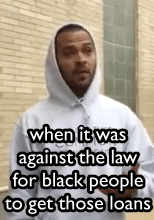


for real. reading the history of the laws (the many laws) written to keep blacks away from anything empowering is quite dizzying and housing discrimination was a big one. laws keeping and taking land from blacks go way back (for example) and as society progressed, it morphed to fit the times. nowadays it’s housing discrimination and it’s rampant.
178K notes
·
View notes
Text

Grace Wisher, a black girl at just 13 years old, helped create the American flag which inspired the national anthem.
Grace had been indentured as an apprentice to Mary Pickersgill, in 1809, when she was about 10 years old, by her mother, Jenny Wisher, who was a free African American. Indenture contracts were usually signed by the child’s father, but most free African Americans in Baltimore at that time had come from rural slavery, so it is possible that Jenny’s husband was still enslaved elsewhere, or she could have been a widow.
The terms of Grace’s indenture are fairly standard, with Mary promising to provide food, shelter, and clothing, and to teach Grace “the art of Housework and plain sewing.” Mary also promised to pay Grace’s mother $12 at the beginning and end of the indenture, and in exchange, Grace promised to faithfully serve and obey Mary for six years.
Maryland law required indenture contracts to end at the age of majority, which was sixteen, and so Grace likely left the Pickersgill household in 1815.
What happened to Grace after her indenture remains unknown, but what is known, is that Grace Wisher’s contribution to the creation of the Star-Spangled Banner flag deserves to be highlighted as part of its history.
•••
Grace Wisher, una niña negra, a la edad de trece años, ayudó a crear la bandera estadounidense la cual inspiró el himno nacional.
Grace fue puesta en un contrato como aprendiz de Mary Pickersgill en 1810, cuando ella tenía diez años de edad. Su madre Jenny Wisher, quién era una afroamericana libre, firmó el contrato. Los contratos de aprendizaje usualmente era firmados por los padres de los niños, pero la mayoría de afroamericanos libres venían de esclavitud rural, así que es posible que el esposo de Jenny estaba esclavizado en otro lugar o pudo haber estado viuda para ese entonces.
Los términos del contrato de Grace eran lo estándar. Mary prometía proveer comida, vivienda, ropa y enseñarle a Grace “el arte de las tareas domésticas y la costura”. Mary también prometió pagarle a la mamá de Grace la cantidad de doce dólares al principio y al final del contrato y a cambio, Grace prometia fielmente servir y obedecer a Mary por seis años.
La rey de Maryland requería que los contratos de aprendizaje terminaran a la mayoría de edad, la cual era dieciséis, así que Grace debió de haber dejado la casa de Pickersgill en el año 1815.
Se desconoce lo que le sucedió a Grace después de su contrato de aprendizaje, pero lo que sí se sabe es que la contribución de Grace Wisher a la creación de la bandera estrellada merece ser destacada como parte de su historia.
117 notes
·
View notes
Photo
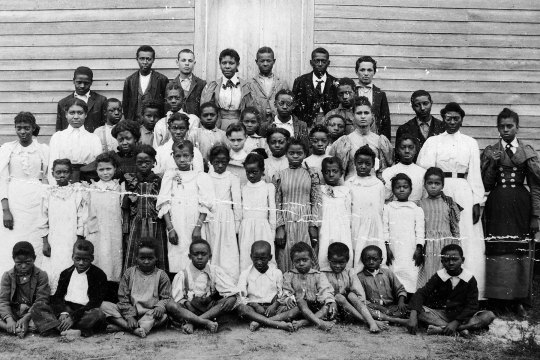
A slave name is the personal name given by others to an enslaved person, or a name inherited from enslaved ancestors. The modern use of the term applies mostly to African Americans and West Indians who are descended from enslaved Africans who retain their name given to their ancestors by the enslavers.

Changing from a slave name to a name embodying an African identity became common after emancipation in the 1960s by those in the African diaspora in the Americas seeking a reconnection to their African cultural roots

A number of African-Americans and Afro-Caribbeans have changed their names out of the belief that the names they were given at birth were slave names. An individual’s name change often coincides with a religious conversion (Muhammad Ali changed his name from Cassius Clay, Malcolm X from Malcolm Little, and Louis Farrakhan changed his from Louis Eugene Walcott, for example) or involvement with the black nationalist movement (e.g., Amiri Baraka and Assata Shakur).
Some organizations encourage African-Americans to abandon their slave names. The Nation of Islam is perhaps the best-known of them. In his book, Message to the Blackman in America, Nation of Islam leader Elijah Muhammad writes often of slave names. Some of his comments include:
“You must remember that slave-names will keep you a slave in the eyes of the civilized world today. You have seen, and recently, that Africa and Asia will not honor you or give you any respect as long as you are called by the white man’s name.”
“You are still called by your slave-masters’ names. By rights, by international rights, you belong to the white man of America. He knows that. You have never gotten out of the shackles of slavery. You are still in them.”
The black nationalist US Organization also advocates for African-Americans to change their slave names
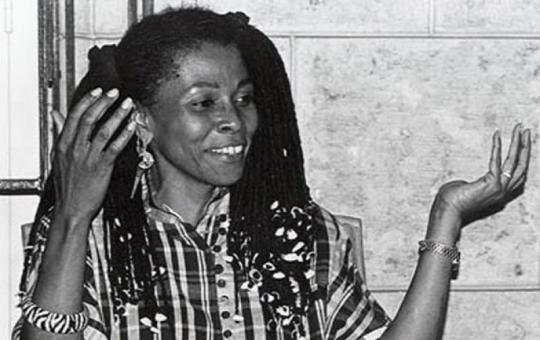
Assata Olugbala Shakur (born JoAnne Deborah Byron; July 16, 1947, sometimes referred to by her married surname Chesimard) is a former member of the Black Liberation Army, who was convicted of the first-degree murder of State Trooper Werner Foerster during a shootout on the New Jersey Turnpike in 1973. Shakur was also the target of the FBI’s COINTELPRO program, a counterintelligence program directed towards Black Liberation groups and activists
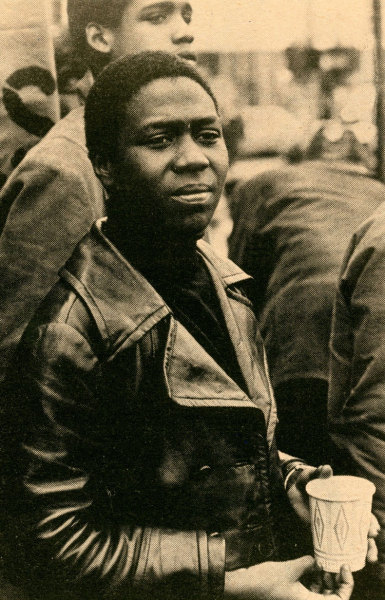
Afeni Shakur (born Alice Faye Williams; January 10, 1947 – May 2, 2016) was an American activist and businesswoman who was the mother of American rapper and actor Tupac Shakur.

Chaka Adunne Aduffe Yemoja Hodarhi Karifi Khan. Yvette Marie Stevens (born March 23, 1953), better known by her stage name Chaka Khan, is an American singer, songwriter and musician. Her career has spanned nearly five decades, beginning in the 1970s as the lead vocalist of the funk band Rufus. Khan received public attention for her vocals and image. Known as the Queen of Funk,Khan was the first R&B artist to have a crossover hit featuring a rapper, with “I Feel for You” in 1984. Khan has won ten Grammys and has sold an estimated 70 million records worldwide.
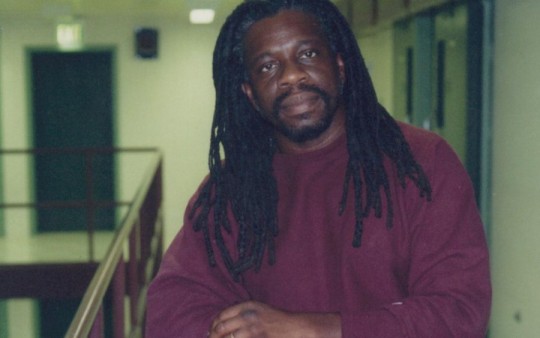
Mutulu Shakur (born Jeral Wayne Williams; August 8, 1950) is an American activist and former member of the Black Liberation Army, sentenced to sixty years in prison for his alleged involvement in a 1981 robbery of a Brinks armored truck in which a guard and two police officers were killed. Shakur was politically active as a teen with the Revolutionary Action Movement (RAM) and later the black separatist movement the Republic of New Afrika. He was stepfather to the late rap artist Tupac Shakur.

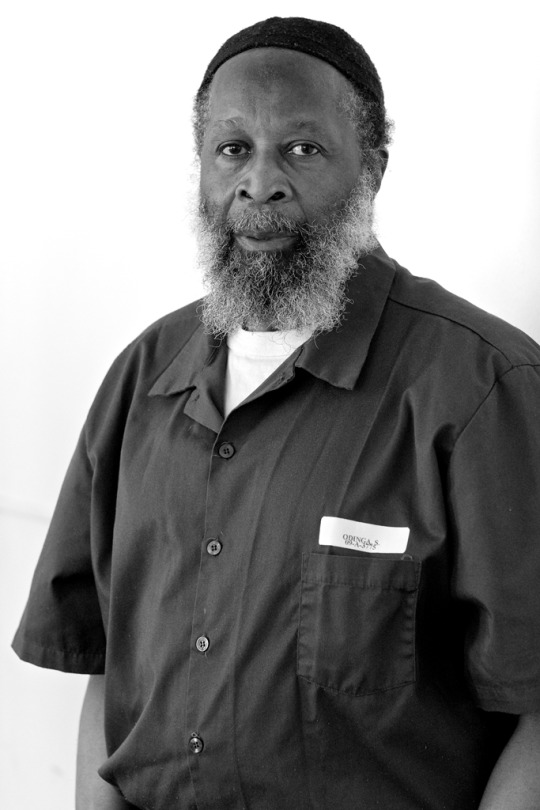
Sekou Odinga (born Nathanial Burns) is an American activist who was imprisoned for actions with the Black Liberation Army in the 1960s and 1970s. In 1965, Sekou joined the Organization of Afro-American Unity (OAAU), founded by Malcolm X. After Malcolm’s death the OAAU was not going in the direction he wanted and in 1967 he was looking at the Black Panther Party. In early 1968 he helped build the Bronx Black Panther Party. On January 17, 1969 two Panthers had been killed by members of Organization Us (a rival Black Nationalist group) and a fellow New York Panther who was in police custody was brutally beaten. Sekou was informed that police were searching for him in connection with a police shooting. At that point, Sekou joined the black underground with the Black Liberation Army.
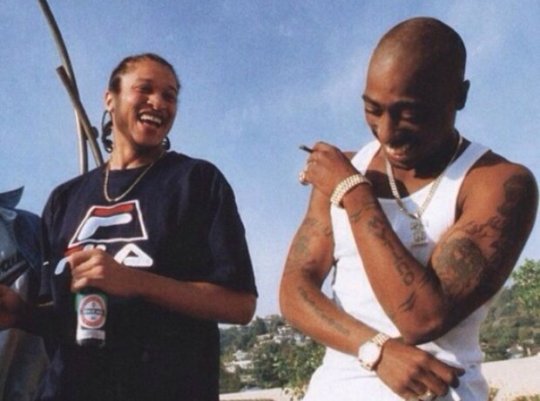
Yafeu Akiyele Fula (October 9, 1977 – November 10, 1996), better known by his stage name Yaki Kadafi, was an American rapper, and a founder and member of the rap groups Outlawz and Dramacydal. Kadafi’s parents, Yaasmyn Fula and Sekou Odinga, were both members of the Black Panther Party. Fula and Tupac Shakur’s mother, Afeni Shakur, were close friends, and Kadafi and Tupac were friends until their deaths in 1996.
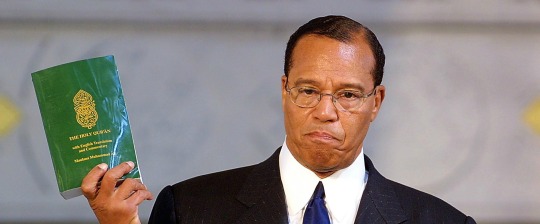
Louis Farrakhan Sr. ( born Louis Eugene Walcott; May 11, 1933), formerly known as Louis X, is an American minister who is the leader of the religious group Nation of Islam (NOI), which the Southern Poverty Law Center describes as a black nationalist group. Previously, he served as the minister of mosques in Boston and Harlem and had been appointed National Representative of the Nation of Islam by former NOI leader Elijah Muhammad.
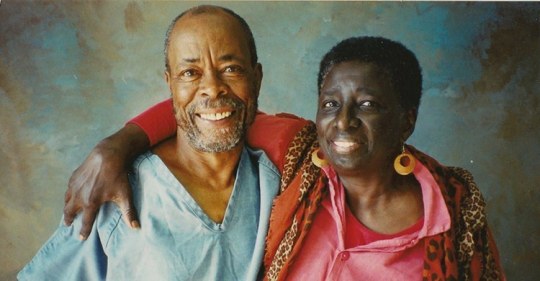
Sundiata Acoli (born January 14, 1937, as Clark Edward Squire) is a former member of the Black Panther Party and the Black Liberation Army. He was sentenced to life in prison in 1974 for murdering a New Jersey state trooper

Prince. Abdul-Rahman ibn Ibrahima Sori (Arabic: عبد الرحمن ابن ابراهيم سوري) (1762–1829) was a Fula nobleman and Amir (commander or governor) who was captured in the Fouta Jallon region of Guinea, West Africa, and sold to slave traders in the United States in 1788.[1] Upon discovering his noble lineage, his owner Thomas Foster began referring to him as “Prince”,[2] a title he kept until his final days. After spending 40 years in slavery, he was freed in 1828 by order of U.S. President John Quincy Adams and Secretary of State Henry Clay, after the Sultan of Morocco requested his release.
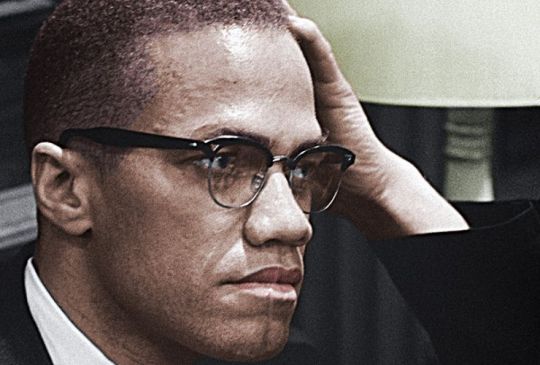
Omowale or Malcolm X (May 19, 1925 – February 21, 1965) was an American Muslim minister and human rights activist who was a popular figure during the civil rights movement. He is best known for his controversial advocacy for the rights of blacks; some consider him a man who indicted white America in the harshest terms for its crimes against black Americans, while others accused him of preaching racism and violence. He has been called one of the greatest and most influential African Americans in history.
Born Malcolm Little in Omaha, Nebraska, he spent his teenage years living in a series of foster homes following his father’s death and his mother’s hospitalization. Little engaged in several illicit activities, and was eventually sentenced to ten years in prison in 1946 for larceny and breaking and entering. In prison, he joined the Nation of Islam (NOI) and changed his name to Malcolm X because, he later wrote, Little was the name that “the white slavemaster … had imposed upon [his] paternal forebears”. After being paroled in 1952, he quickly became one of the organization’s most influential leaders.
Expressing many regrets about his time with them, which he had come to regard as largely wasted, he instead embraced Sunni Islam. Malcolm X then began to advocate for racial integration and disavowed racism after completing Hajj, whereby he also became known as el-Hajj Malik el-Shabazz

Tupac Amaru Shakur; born Lesane Parish Crooks, June 16, 1971 – September 13, 1996), also known by his stage names 2Pac and Makaveli, was an American rapper and actor.He is considered by many to be one of the greatest rappers of all time. Much of Shakur’s work has been noted for addressing contemporary social issues that plagued inner cities, and he is considered a symbol of resistance and activism against inequality
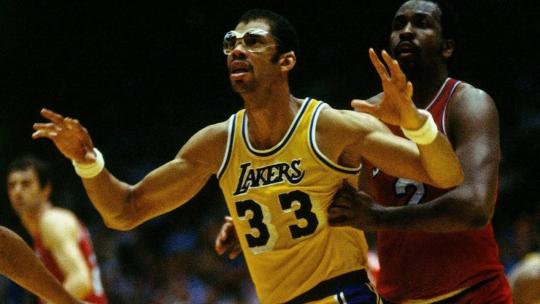
Kareem Abdul-Jabbar (born Ferdinand Lewis Alcindor Jr.; April 16, 1947) is an American retired professional basketball player who played 20 seasons in the National Basketball Association (NBA) for the Milwaukee Bucks and the Los Angeles Lakers. During his career as a center, Abdul-Jabbar was a record six-time NBA Most Valuable Player (MVP), a record 19-time NBA All-Star, a 15-time All-NBA selection, and an 11-time NBA All-Defensive Team member. A member of six NBA championship teams as a player and two more as an assistant coach, Abdul-Jabbar twice was voted NBA Finals MVP. In 1996, he was honored as one of the 50 Greatest Players in NBA History. NBA coach Pat Riley and players Isiah Thomas and Julius Erving have called him the greatest basketball player of all time
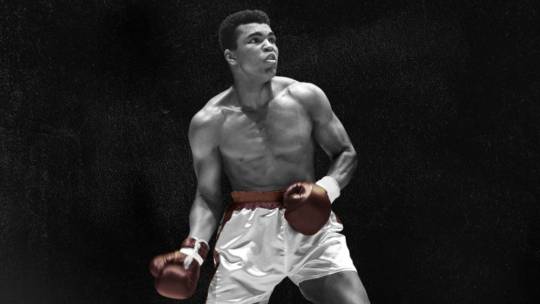
Muhammad Ali (/ɑːˈliː/; born Cassius Marcellus Clay Jr.;January 17, 1942 – June 3, 2016) was an American professional boxer, activist, and philanthropist. Nicknamed “The Greatest,” he is widely regarded as one of the most significant and celebrated sports figures of the 20th century and as one of the greatest boxers of all time.

Kwame Ture (/ˈkwɑːmeɪ ˈtʊəreɪ/; born Stokely Standiford Churchill Carmichael, June 29, 1941 – November 15, 1998) was a prominent American socialist organizer in the civil rights movement in the United States and the global Pan-African movement. Born in Trinidad, he grew up in the United States from the age of 11 and became an activist while attending Howard University. He eventually developed the Black Power movement, first while leading the Student Nonviolent Coordinating Committee (SNCC), later serving as the “Honorary Prime Minister” of the Black Panther Party (BPP), and lastly as a leader of the All-African People’s Revolutionary Party (A-APRP).

Amiri Baraka (born Everett LeRoi Jones; October 7, 1934 – January 9, 2014), previously known as LeRoi Jones and Imamu Amear Baraka, was an American writer of poetry, drama, fiction, essays and music criticism. He was the author of numerous books of poetry and taught at several universities, including the State University of New York at Buffalo and the State University of New York at Stony Brook. He received the PEN/Beyond Margins Award, in 2008 for Tales of the Out and the Gone
As long as you around here wearing the white men’s name bragging about this so called democracy, you will always be looked down up, by the rest of the world-Malcom X
7K notes
·
View notes
Text
3 notes
·
View notes
Photo

“The Timucuan tribe lived and thrived in present-day Florida from ancient times until the early nineteenth century when they were wiped out by European disease, slave trade, and war. Archaeology confirms the Native people had a wide range of Florida folk magic beliefs and traditions.”
“In the 1700’s, bands of Creek Natives from Alabama and Georgia migrated to Florida. War with European settlers and other tribes sent them to the sunshine state in search of land and peace. They brought their beliefs and spiritual traditions with them, but adopted new ones once they’d settled in. The Creeks would become the Seminole nation.”
“The Seminole tribes hid many runaway slaves from officials. Relationships between them gave way to the term the “Black Seminoles”. Other African settlers were promised freedom if they would only covert to Spanish Catholicism.”
“ The runaway slaves and free men brought their culture and beliefs to Florida: a mixture of Christian and indigenous African customs. They also brought with them a folk magic tradition now called Conjure, Rootwork or Hoodoo. Like the Natives, the African settlers were resourceful. They were in touch with the land and the food and medicine it provided. The land provided magical resources, as well. To the African settlers who had faced much torment at the hands of their oppressors, magic was a way to survive.”
From otherworldlyoracle.com
836 notes
·
View notes











